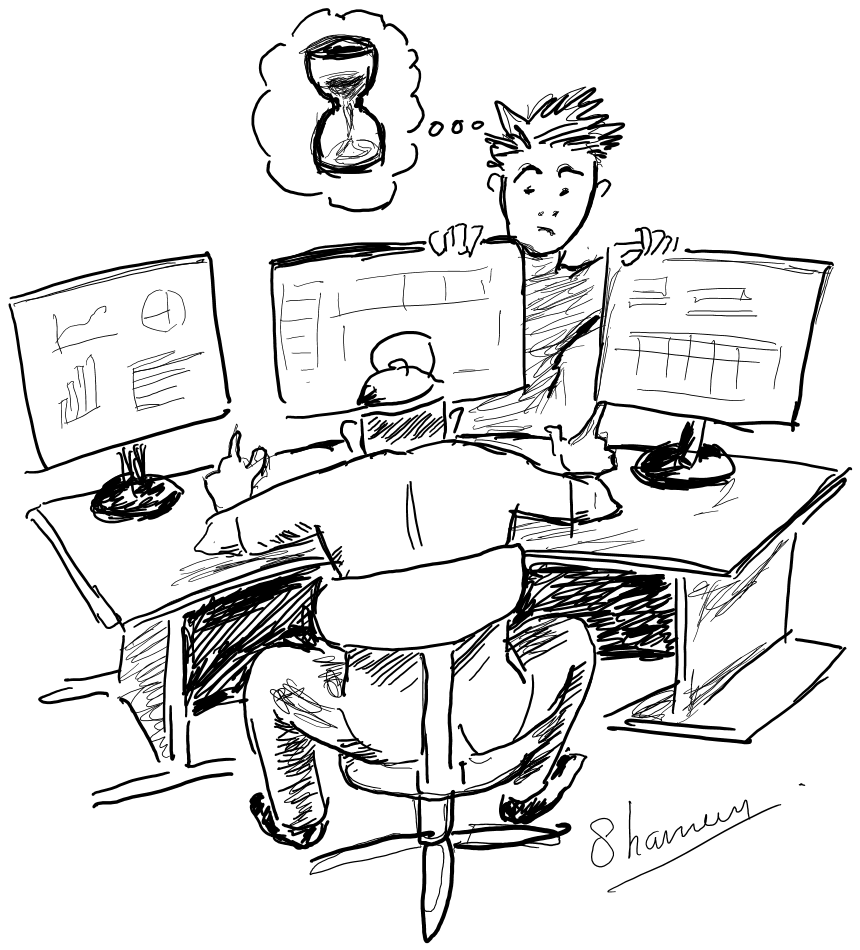
“Hey, the EHR market is saturated, we don’t really think there is any play left there,” this comment came from a reputable VC in the healthcare industry. And I sat there wondering what it is that he is talking about. Every single day I am taking calls from doctors who want an EHR that suits them, and they are willing to pay for it. And I ask them, “why do you not want to use the free EHR that everybody says is taking over the world?” They come up with answers that are all over the place. The only common factor is that they are not happy with the assembly-line product.
Doctors are an embattled group in the United States today. It used to be that a doctor was what every middle class family aspired their children to be. Today they are being exploited by the insurance companies on the one end and government regulations on the other. As part of our services, we offer Medical Billing Services or, if you want to be fancy, Revenue Cycle Management(RCM) services. I am constantly bewildered at how little money, relative to the effort and the investment, that the doctors make.
Compounding their frustrations are the rules that are set forth about maintaining medical records. And the government offered billions of dollars to help implement it. The government said, let it be written and let it be done, and the numerous innovators ran to their hot presses and churned out EMR/EHR solutions that everyone can use.
As Dr. Lawrence ‘Rusty’ Hofmann In the Huffington Post, puts it, “EHRs are like Model T Ford: Any Color You Want As Long As It’s Black”
So now we have thousands of EHR systems in the country today. So now you have products that exists solely because the government mandated and funded it. Hey, problem solved, isn’t it?
And then the VCs declared the space saturated and they move on.
Now comes tremors from various parts of the healthcare system. Doctors are complaining that it is too difficult to use EHR systems. Others are threatening to shut down their practices rather than learn new systems because most of the EHR systems are asking them to change the way they have been practicing. When you go to the doctor’s office these days, you will find them looking at a computer screen and asking you questions which they promptly type. During this entire conversation the only eye contact you are probably going to get is when he/she walks in the door.
Dr. Hofmann goes on to say “When speaking with patients, it’s important to pay attention to their facial and body expressions (i.e., Why did you squint? Why are you shrugging your shoulders?) Doctors need to make sure patients are comfortable with the situation and understand the recommendation, and you can’t read body language when you are looking at a screen.”
Each doctor is unique in the way they treat patients. Each of them perfected their own techniques over years of practicing medicine. And what arrogance should we, as software developers, have to tell them that what they are doing is wrong. Each of the forms they use is designed by them after a considerable amount of thought. And it is imperative that we accommodate them rather than reverse. The current EHR 1.0 bunch do not allow the doctor to exercise his individuality and expertise.
Many of the first generation EHRs saw this problem and did the best they could: they called their software customizable. What does that mean? In real terms you can make additional fields in the forms. This is what we call, “configurable,” not customizable. A feeble attempt at truly meeting the needs.
What the doctors require is an easy to use system that molds to the way they practice. Something that is intuitive and customizable without having to spend hundreds of thousands of dollars onto it. Not every doctor has a booming practice with money to spend on expensive customizable systems. Everyone should have access to it. That is why we hear study after study stating that you can expect a 45-50% churn in the EHR market.
The market is nowhere near saturated. The market needs a product that addresses the need and the pain of providers.
blueBriX – a cloud-based healthcare specific software development and infrastructure environment that empowers you to build and deploy your eHealth solution quick and efficient, is what the market needs. It is not just any EHR system but is a platform that provides you the ability to build ehealth solutions, manage your multi-national presence, manage unique workflows, and build unique EHR systems.